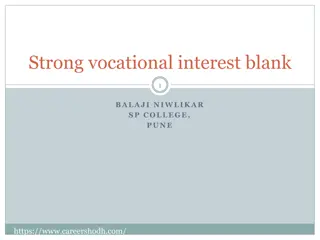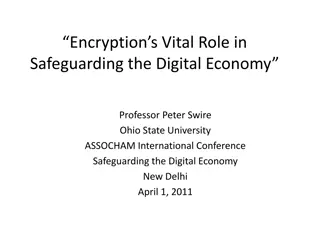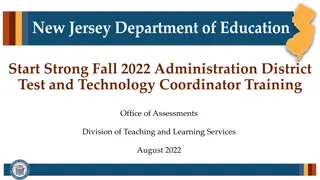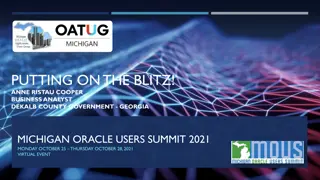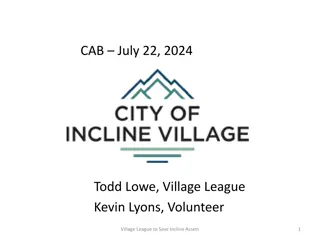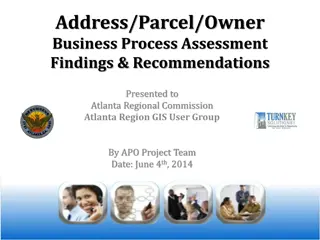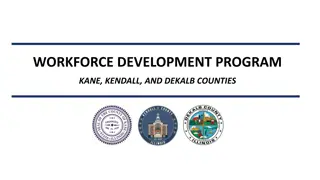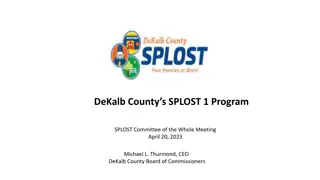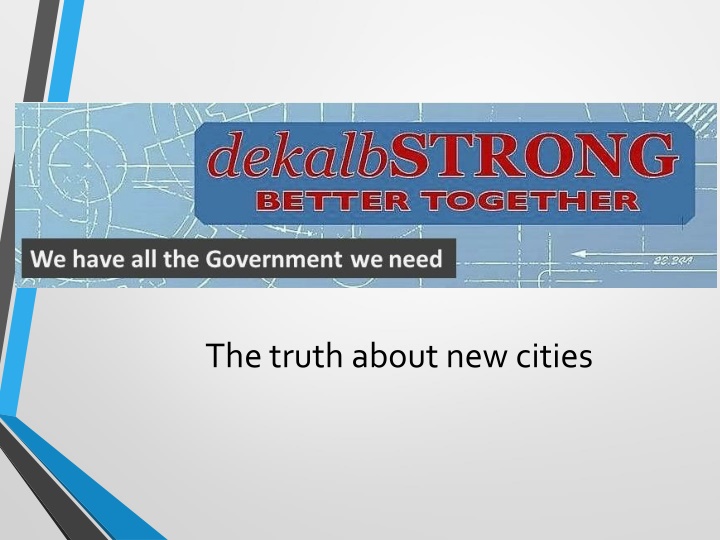
Challenges of City Formation and Governance in DeKalb County
Exploring the evolution of new city creation process in DeKalb County since 2002, highlighting issues like uncoordinated government, overcomplicated bureaucracy, public safety variations, and tax burdens. Efforts for cityhood reform are discussed to address these challenges.
Download Presentation

Please find below an Image/Link to download the presentation.
The content on the website is provided AS IS for your information and personal use only. It may not be sold, licensed, or shared on other websites without obtaining consent from the author. If you encounter any issues during the download, it is possible that the publisher has removed the file from their server.
You are allowed to download the files provided on this website for personal or commercial use, subject to the condition that they are used lawfully. All files are the property of their respective owners.
The content on the website is provided AS IS for your information and personal use only. It may not be sold, licensed, or shared on other websites without obtaining consent from the author.
E N D
Presentation Transcript
How did we get here? In 2002, the Georgia Assembly changed the rules for creating new cities No longer requires that local legislators support new cities. Any single legislator can sponsor a cityhood bill. Any self- appointed person can propose a city. This process is open to abuse and has yielded absurd results that don t recognize community lines. No citizen input is required. Creating a referendum is totally at the discretion of the legislature and the Governor. Last session, an existing city was fractured to create a new break-away city, setting a new precedent in city formation. There are new efforts to reform the cityhood process, which has been widely recognized as broken. Despite all of the talk of new cities, the majority of the county is still unincorporated.
What will a city do? County provides most services in DeKalb cities. Cities only take a few. Schools Fire/EMS Sanitation Water Courts Jail Senior Affairs Family & Children Services Property Appraisal PDK Airport Elections Libraries Animal Shelter Tax Commissioner Permitting Police Public Works Parks Planning and Zoning Code Enforcement Typical city-lite Typical full- service city
Public Safety Comparison (Policing / enforcement) DeKalb PD City PD Neighborhood patrols Neighborhood patrols Traffic Enforcement Traffic Enforcement Burglary Response Burglary Response Felony Investigations Call GSP or GBI Forensics Call GBI Bomb Squad Call DCPD SWAT Call DCPD Helicopter Surveillance Call DCPD Sheriff None Jail None Courts None Major Incident Response (Plane on 285) Call DCPD
Problems with uncoordinated government
Emergency response is compromised
City tax burdens All cities in DeKalb County over ten years old pay more in taxes than unincorporated areas. Why does this happen? Inefficiency of smaller bureaucracy Demographic shifts The tendency of governments to grow
Added government = Added cost Overhead budget categories Mayor & Council City Manager City Clerk Finance Law/Legal I.T. Human Resources Communications "Non-department" Source: https://www.brookhavenga.gov/finance
Taxes are more than Millage! Your millage rate can go down and your tax burden can go up. Differences in exemptions Additional franchise fees Increased fines, occupancy taxes, business licenses, etc.
The effects of fragmented government A Study by the Organization for Economic Co-operation and Development (OECD) reveals: Productivity decreases. Money spent on fines, fees, increased taxes, etc is then not available for economically productive spending. Fragmented government can reduce economic growth by as much as 5 percent. Services are not coordinated. Our pressing problems (such as transit) are REGIONAL, not local. Economies don t end at municipal borders. Cities compete with each other. They rarely cooperate. *oecd.org The Metropolitan Century
Property Tax Basics A city s viability depends largely on their mix of residential and commercial. Cities draw their lines trying to maximize their commercial and minimize residential. Not all cities are created equal!
SPLOST SPLOST is the revenue from sales tax that the county uses for infrastructure improvements The ability to spend SPLOST dollars has been touted as a reason to form a city SPLOST funds were included in the feasibility studies as a source of revenue for cities Newly formed cities would not be eligible for SPLOST funds. This is not a reason to form a new city, and this is a key error in the studies.
Opportunities for corruption Big problems in new metro cities -- AJC, 1/23/2015 Attorney General: Brookhaven violated open records act -- Brookhaven Post, 7/27/2015 Tax breaks given for apartment connected to Chamblee Mayor -- AJC, 9/2/2016 Sandy Springs City Springs budget going up new city hall development to cost $222 million. -- Marietta Daily Journal, 12/19/2017 Stonecrest tax increase, huge boost to mayor s salary on table -- AJC, 3/23/2018 City Hall or Taj Mahal? $25 million city hall project includes half-million private staircase for city council. -- Johns Creek Post, 9/12/2018
Annexation concerns Cities cannot annex any area they want. There are limited methods 100% Method All property owners must sign a petition. 60% Method 60% of property owners AND 60% of residents must sign a petition Resolution and referendum the legislature puts a referendum on the ballot and 50% of the vote must be in favor Local Act of Legislature the legislature can pass legislation adding area to a city if there are less than 500 residents
Solutions A study commission has been formed trying to improve what everyone acknowledges is a broken process. More citizen engagement and oversight in DeKalb County government is working, and needs to be continued. Adding another government that needs to be monitored has been proven to be a failed strategy to address corruption or improvement of county services.






